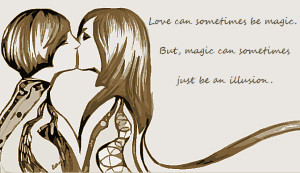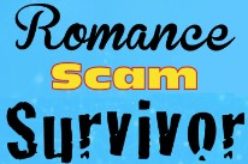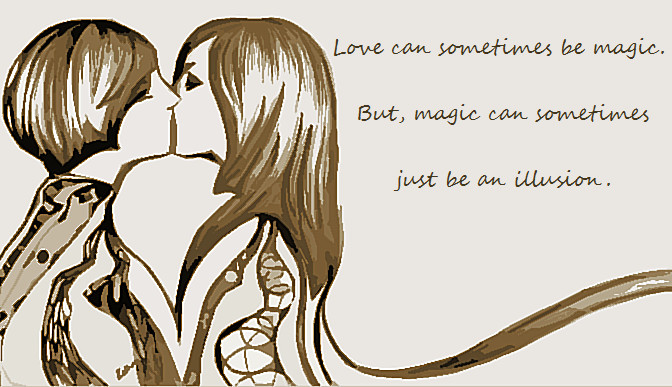The definitive text on healing from being scammed is Cyber Love’s Illusions – The Healing Journey – Recovering from a Romance Scam, by Anna Alden Tirrill and Jon van Helsing. Here I review the first section on the emotional aftermath of the scam and letting go.
—- —-

I have talked about various aspects of healing journey after being scammed in my posts here, mostly from my own experience. The definitive text is Cyber Love’s Illusions – The Healing Journey – Recovering from a Romance Scam, by Anna Alden Tirrill and Jon van Helsing. This is the companion book to Cyber Love’s Illusions: Anatomy of a Romance Scam. I have wanted to have these books for some time, but have not had the money to pay for them and shipping to Australia. A dear friend has gifted them to me, but only the first has arrived so far. Both books have at their core the information and experience gathered from the Yahoo group Romancescams run by the experienced team from www.rormancescams.org . They have supported tens of thousands of romance scam support group members and millions of visitors to their site.
I was pleased to see that the ‘Healing Journey’ book addresses the emotional aftermath of being scammed in one section and the practical and legal aftermath in another. I have made similar distinctions through my blog. So far, I have only read the first section, and plan to write my next blog on part two.
The first chapter helps readers identify if you have been scammed. There is a quiz, with 18 Yes/No questions. Three or more YES answers leads you to consider red flags to see if they apply including:
- 9 characteristics or behaviours of scammers on first contact
- 22 typical characteristics of their communication skills
- 21 habits that define them
- 3 inconsistencies noticed about scammers
If you have identified that you have been scammed from this, there are 7 things you should do, including an additional set of six activities to prove to yourself that the person is not who they say they are, provided by a Nigerian “deep throat”. A number of different scam scenarios are shared, as well as examples of types of photos used by scammers, actual IM conversations, and a fake passport. Its all very comprehensive so if you have had any doubts before now, if any of these apply to you there will be no lingering doubts. There is also a space at the end of each chapter to write down your own thoughts about information covered in the chapter.
Through the next chapters the difficulties of letting go of the fantasy relationship set up by the scammer are covered, including the similarities with Battered Women’s Syndrome, and the stages these women go through. To quote:
“In extreme cases of victimization, as with domestic abuse, the overriding emotions included: learned helplessness, loss of self-esteem, self-blame, anxiety, depression, fear, suspiciousness, loss of belief in the possibility of change, and the tendency to use self-destructive methods of coping with fear and stress, like food, drug or alcohol abuse. Battered Women’s Syndrome (BWS) is recognised in the Diagnostic and Statistical Manual (DSM) as a formal clinical syndrome within Post-Traumatic Stress Disorder (PTSD).”
And, when the eventual awakening to the scam happens,
“This awakening brings with it the emotional devastation, not only of a broken heart, but diminished self-image, demolished self-confidence, and the inability to trust oneself, one’s judgement, one’s feelings and ultimately, other people.”
I recently received feedback that at a particular outing, one of the other people there found me ‘unfriendly’. I realised that it was exactly this state of being described in this quote applying in my life. I could not put myself out there to be friendly because at that time I did not value myself as someone worth knowing.

The feeling of being emotionally raped and the stages of Rape Trauma Syndrome as it applies to romance scams are explored. There are quotes from victims of the difficulties they have in letting go of the fairy tale romance, the dream that has been built by the scammer, and the grief and loss that is experienced. The way I got through this was to go to www.romancescam.com and read the postings there of interactions of others with scammers. I soon saw that the scenarios were the same, the text was often the same, and sometimes the names are the same. The name of the daughter in my scam was Patience Blessing ( I just searched on the name Patience and found this). I found a scenario VERY similar to mine where the daughter was called Blessing Patience. By doing all this research I was able to see that the scam was NOT PERSONAL. It was not about me as a person at all. It was all about the money I could provide. Doing this enabled me to let go of the idea that there was a person there that loved me. I realised it was all just an act.
The difficult topic of cyber-love is explored, including how people are lured by wanting “to know they are desirable, special, wanted, loved and cherished”, into disrobing in front of a webcam. Whilst they think they are doing this in the privacy of their own home with the partner that they love, will marry, and who is caressing them with loving words in a seemingly mutual engagement, in reality they are doing this on a webcam beaming to a cyber-café, somewhere in Nigeria most likely, with men standing around ogling at them and laughing at them. The importance of this event in the mind of the victim cannot be underestimated however, as it signifies and further inflates a deep level of intimacy, that is a further manipulation of the victim into being emotionally likely to send money.
“Because the scammer uses this perceived intimacy to make inroads into the victim’s mind, emotions and will, he can often totally disengage the victim’s normal reasoning ability and her (or his) sense of discernment and judgement”.
This is a key ingredient in “taking the brain” that I talk about in a previous blog.  I know the power of this intimacy from personal experience. I had not realised it was actually abuse until I read this in the Scams of the Heart Blog. I held on to a comment made by my scammer that he was “surprised that he found himself attracted to my body type” as an indication that he was really attracted to me way beyond the time when I let go of other beliefs that the scam had been real. Luckily for me I was not subject to a further blackmail scam with threats to make my ‘webcam’ activity public, but I do know of others who have received this threat.
I know the power of this intimacy from personal experience. I had not realised it was actually abuse until I read this in the Scams of the Heart Blog. I held on to a comment made by my scammer that he was “surprised that he found himself attracted to my body type” as an indication that he was really attracted to me way beyond the time when I let go of other beliefs that the scam had been real. Luckily for me I was not subject to a further blackmail scam with threats to make my ‘webcam’ activity public, but I do know of others who have received this threat.
Though its not the last chapter in this section on the emotional impacts, I will close this blog with this further quote from this great book which echoes my last post on the Right of Reply:
“Above all else, victims need to understand that they DID NOTHING WRONG! They were being a loving, compassionate and caring person. They’re not stupid and they’re not to blame. They don’t need to put themselves down or let anyone else judge or criticise them.”
More on the book in my next blog.
Anna Alden Tirrill and Jon van Helsing, Cyber Love’s Illusions – The Healing Journey – Recovering from a Romance Scam, 2010 Published by White Cottage Publishing Company. http://www.cyberlovesillusions.com/ This is the companion book to Cyber Love’s Illusions: Anatomy of a Romance Scam.


Hi Jan!
What a wonderful post! I loved overwork and the total format. The artwork was moving and just right for this blog. Thank you so much for all you do to move women forward.
Glenda